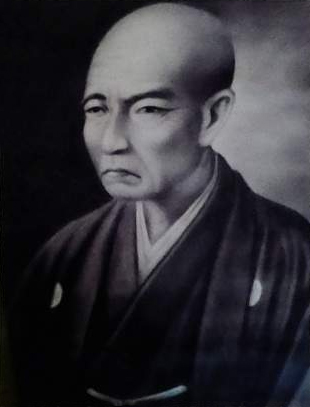Profiles in Vice - Yamamoto Tsunetomo, Hagakure, and Loyalty as Self-Indulgence
When I started this series, one of the points I raised was that virtue carried too far becomes vice. It is difficult to find a good example of how loyalty carried too far becomes a vice; we typically find reasons that a person who carried their loyalty too far was acting for some other reason, such as with the German army hiding behind the "sacred honor of the German soldier" and the fact that the influencers of the German army generally agreed with Hitler or at the very least did not find him objectionable, but were more concerned with his incompetence. They were not holding their noses and doing it out of professional loyalty, they were doing it out of self-interest from beginning to end.
Instead, I will consider a man who carried expressions of loyalty to such extremes that they became absurd and weakened his credibility. That man is Yamamoto Tsunetomo, subject of Hagakure. We know relatively little about the man outside of that book, so the book deserves some discussion first. It was written by Tashira Tsuratomo, based on conversations he had with Yamamoto Tsunetomo, who had by that time retired from worldly affairs and become a monk. Tashira wrote it between 1709 and 1716 to recount the long and obviously deep conversations the two had. Many of its several thousand enclosed anecdotes are profound, many are absurd, and many are self-contradictory. Most have never even made it into English, as translators view them as repetitive, confusing, or mundane. Given what has made it into English, this is probably a wise choice.
 |
| Ol' Sourpuss himself. |
If Hagakure has a distinct through-line, it is an obsession with death; if it has a philosophical basis, though, it is that loyalty owed to a lord is absolute while in service, and that no step is too great in that service. Yamamoto spends much of his time bemoaning the low state of morals - much of the book reads as "Kids These Days" - that allowed such an age as his own, where he was forbidden to follow his lord into death, and had to settle for a metaphorical death through renouncing the world. He does not seem to take into consideration that his life beyond that moment served its own purpose, but instead, like a high-school football star who can find no purpose after graduation, insists that things were just so much better back then.
He takes the absurd declarations of loyalty even further than this; he recounts one period in his life where his greatest wish was to be taken into the service of the Nabeshima family, daimyo of Saga, and he was confused as to why, after studying to become a scholar, he was not taken into service. He was told that the lord of Saga thought he looked too intelligent. His response was to spend a year practicing looking less intelligent. This could be interpreted as "dress for the job you want," but at the same time, there were other lords to serve, and his unwavering desire to serve specifically under Nabeshima Mitsushige was regardless of how the Nabeshima regarded him. The ridiculous expressions of loyalty stretched still further, in how he handled his lord's death.
When Mitsushige died, he was devastated, and hoped to kill himself in one final act of service to the old lord. However, the Tokugawa shogunate had outlawed that practice at the national level, and Mitsushige himself had a much more practical view of service - that suicidal devotion was selfish and deprived his heirs of good servants - so devotional seppuku had been outlawed at the domain level as well. Yamamoto Tsunetomo attempted, very briefly, to serve the successor, but found that the new lord's attitudes were not to his liking, so he engaged in the closest thing to a protest suicide that he could muster, renounced the world, and became a monk.
At some point, these declarations become less a display of virtue, and more a display of self-indulgence, and they become a vice. It would have been sufficient to be loyal, or to show loyalty; instead, he chose to remonstrate with future generations on the subject about how loyalty was a lost virtue. These excessive displays contrast dramatically with his actual accomplishments in any other field - what good is being loyal if the only thing to recommend you is loyalty, since you cannot hope to compete with the loyalty of a chair, footstool, or other inanimate object? Especially given the emphasis his words placed on his supposed loyalty to Mitsushige, would service to the lord's son, to the point of the childhood tutor of Oda Nobunaga, who did kill himself in protest at his lord's behavior, not have been the stronger sign of loyalty to his memory?
Others may make of Yamamoto Tsunemoto what they may; I find his discussions of loyalty to be largely self-serving, clouded by memory, and more in support of his general philosophy of Kids These Days than an actual statement of loyalty. He felt free to criticize others' choice of delayed action over immediate action, but he himself had chosen not to embrace the death which he so memorably described as the way of the warrior. His failure to do so gives the lie to his belief in his own worldview, and, because it reaches the point of maudlin self-indulgence, it becomes the first of my profiles in vice.
Comments
Post a Comment